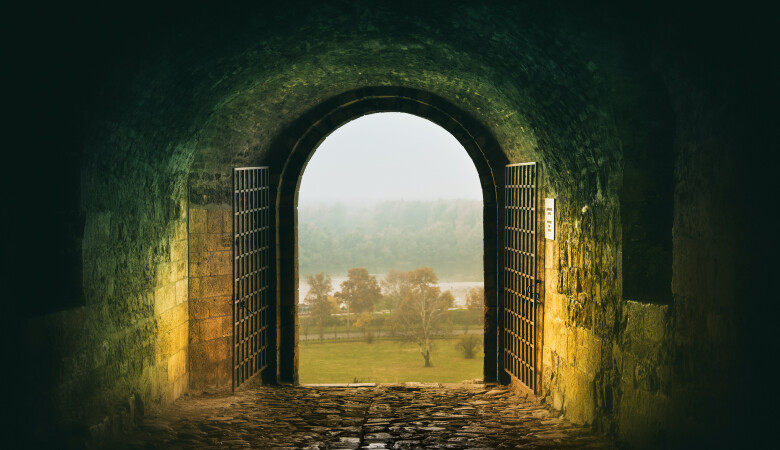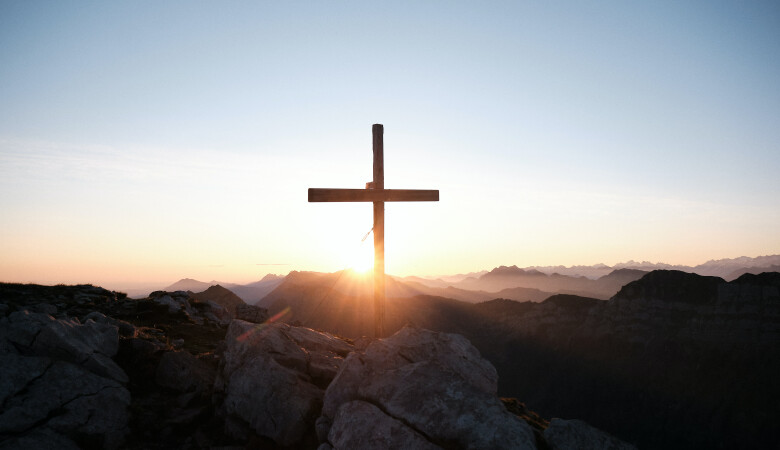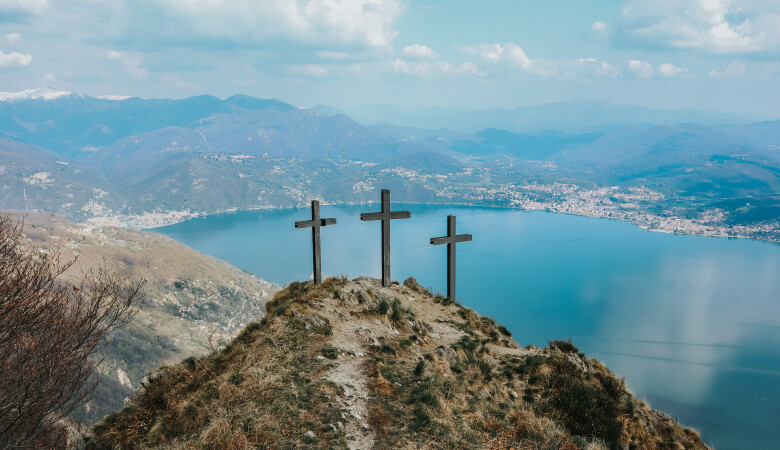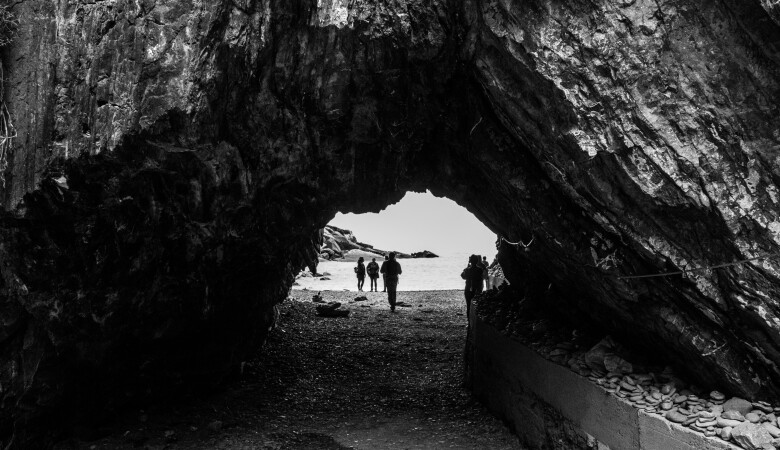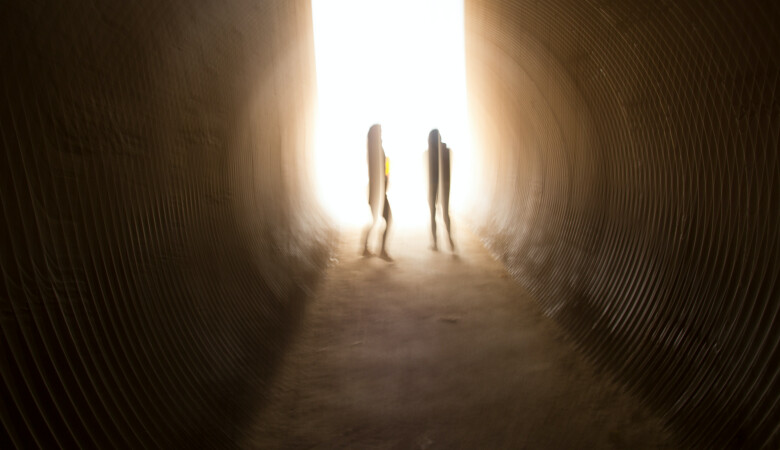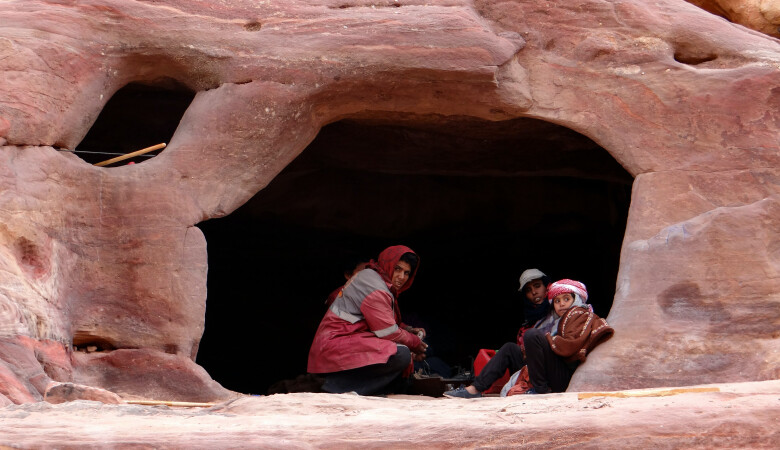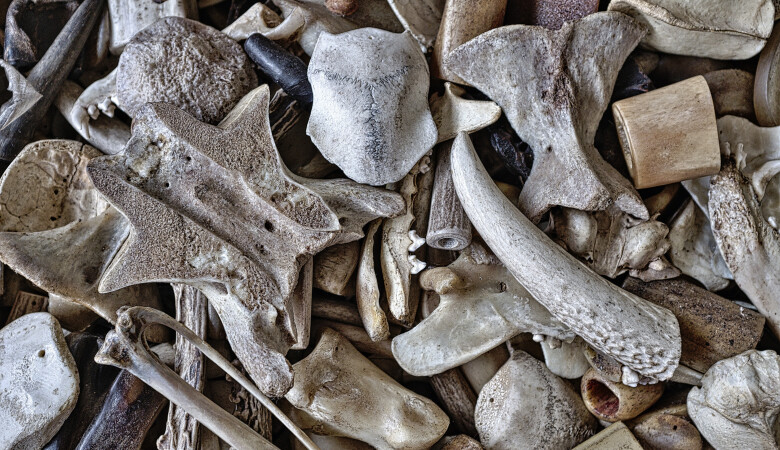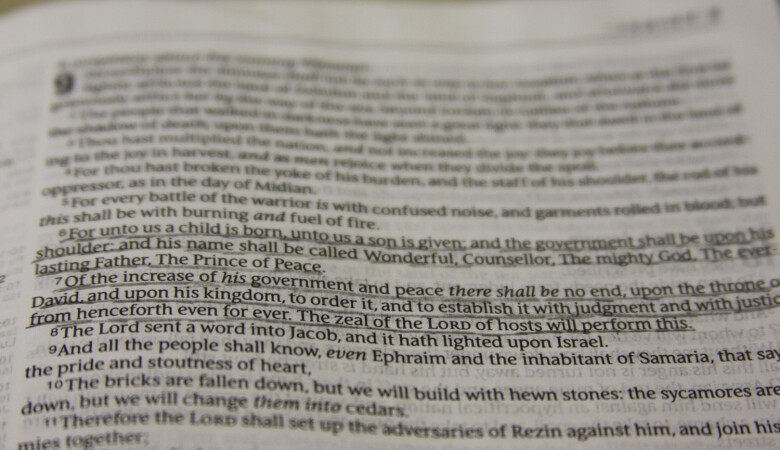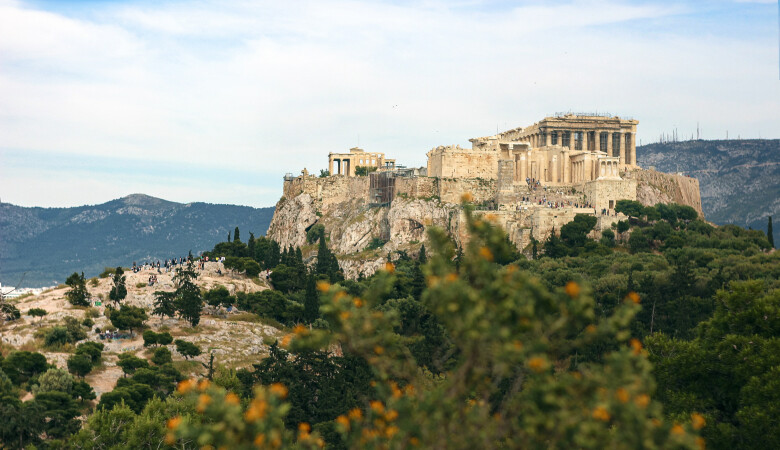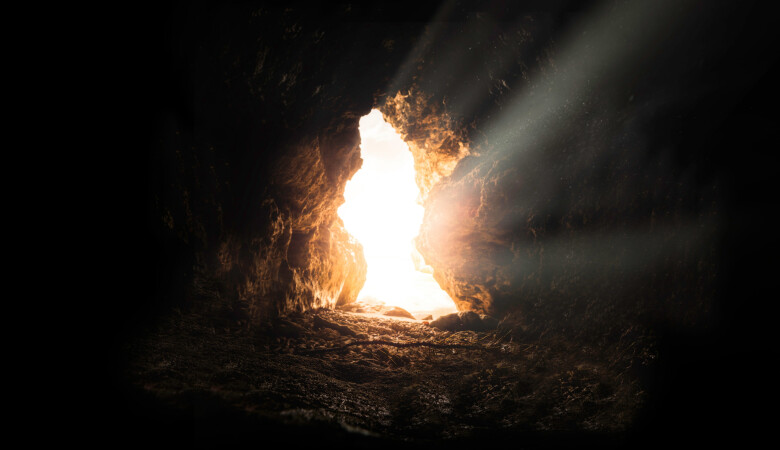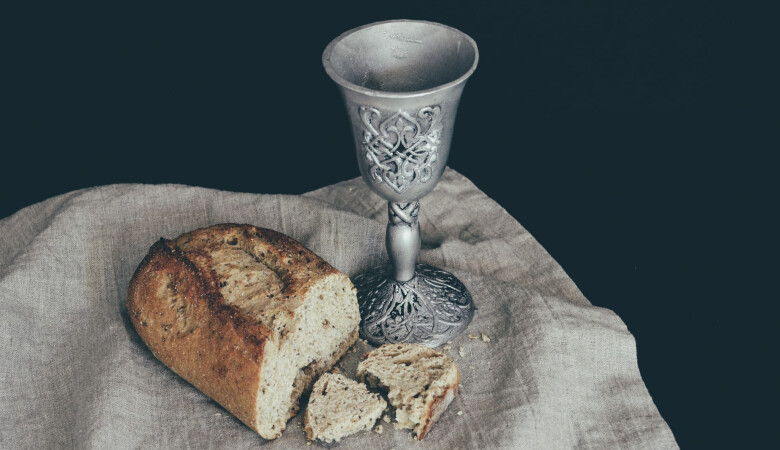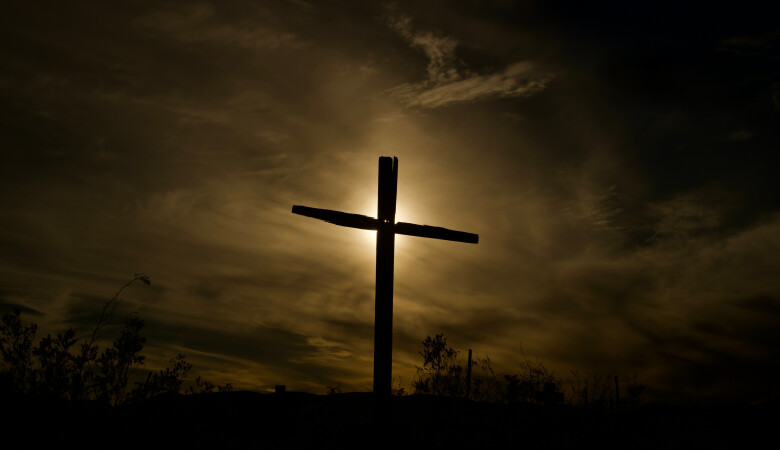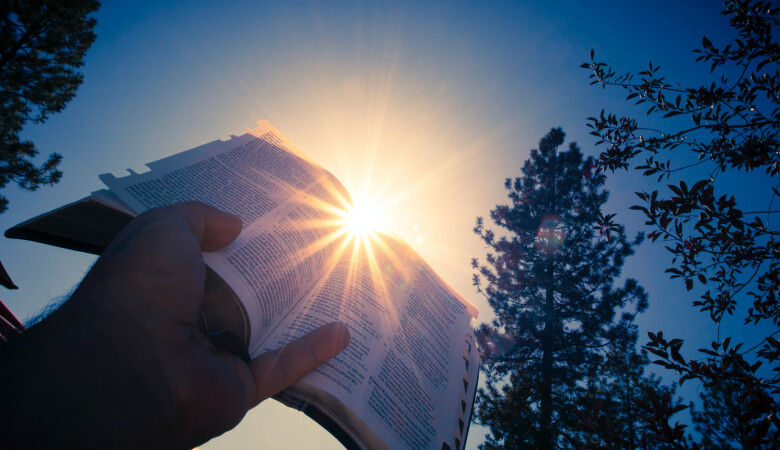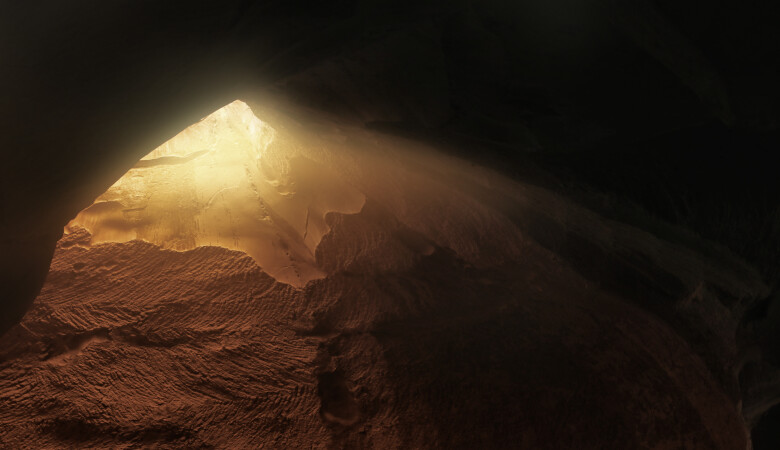Where O Death Is Your Victory?!
April 05, 2015 | Andy Davis
1 Corinthians 15:50-58
Resurrection of Christ
Andy Davis preaches an expository sermon on 1 Corinthians 15:50-58. The main subject of the sermon is the impossibility of death having victory of believers in Christ.
- SERMON TRANSCRIPT -
Take your Bibles, if you would, and look with me at 1 Corinthians 15. We heard Greg read the last section of this incredible chapter. And my purpose today is to give you a sense of the whole chapter but a culmination in these last nine verses: the taunt, the victory taunt over death, the sense of certitude that we have that some day, we will see death dead forever. So today, we celebrate the death of death and the resurrection of Jesus Christ. We celebrate not only Christ's victory over the grave, but the fact that through faith in Christ, we ourselves individually will some day look in triumph over death; we will look in triumph at the grave. And as I prayed a moment ago based on Matthew 13, we will be in radiant resurrection bodies; we will shine like the sun in the kingdom of our Father, some day.
And not only that, but we who are Christians, who really yearn to be faithful to the Lord, who want our lives to count for eternity, we’re told at the very end of this chapter, the final verse that you heard Greg read, verse 58, that because of the resurrection of Jesus Christ, our labor in the Lord is not in vain. Everything that we do in service to Jesus Christ by faith will stand for eternity, will be radiantly glorious in the Kingdom of Heaven. Now, death has stood over us, mocking us, taunting us, and proclaiming that everything that we are, everything we do, everything that we love, everything we cherish is ultimately dust in the wind. Death has told us that everything is vanity, it is emptiness, worthlessness.
To some degree, the Old Testament book of Ecclesiastes written by King Solomon, thousand years before Christ, seemed to agree with this hopeless verdict over our earthly lives — seemed to agree. Ecclesiastes 1:2-4 begins with these words, “‘Vanity of vanities,’ says the Preacher, ‘Vanity of vanities! All is vanity.’” That means emptiness, worthlessness, amounting to nothing. “‘What advantage does man have in all his work, which he does under the sun, a generation comes and then a generation goes, but what comes of it all.’ [The preacher asked, Solomon asked.]” Death stood over the wise man in Ecclesiastes, mocked everything he did. It mocked his pleasures and his projects alike. He enjoyed life for a while, but soon realized that death exposed as utter futility the temporary pleasures of this world, eating and drinking and being merry.
So this wise man turned to vast projects: he built flourishing gardens, architectural projects; he studied plant life and animal life and celestial movements, and he worked and labored and built and polished and just did great projects. The whole time that he was busy with these elaborate projects, one thought much dominated his mind: “Someday I'm going to die and I'm gonna give all of this that I have worked so hard on to someone else, I'm gonna hand all this over to someone else and he might be a fool, and he might squander everything I poured my life into and what would come of all of it then? What good is all of that?” So death taunted him and mocked him and said, “In effect, you're no better than a beast.” Ecclesiastes 3:19-20 says, “For the fate of the sons of men and the fate of beasts is the same. As one dies so dies the other; indeed, they all have the same breath and there is no advantage for man over beast, for all is vanity. All go to the same place. All came from the dust and all return to the dust.”
So the wise man in Ecclesiastes came to this sorrowful conclusion: “[and] so” — because of all of this — “[and] so I hated life.” Why? Well, because of death, because death made everything a vanity, emptiness, worthlessness, dust in the wind. Now, such a gloomy outlook is actually very common in this world, but we're surprised to find it in the Bible, aren't we? But there is a key phrase that Solomon uses again and again in Ecclesiastes, this phrase “under the sun.” if you've read the Book of Ecclesiastes, you see it's in there 27 times, he says it: “under the sun, under the sun.” Such as this, Ecclesiastes 1:3: “What does man gain by all the toil at which he toils under the sun?” Or again, later in that first chapter, Ecclesiastes 1:14: “I have seen everything that is done under the sun, and behold, all is vanity and a striving after wind.” Ecclesiastes 2:11: “Yet when I surveyed all that my hands had done and what I had toiled to achieve, everything was meaningless, a chasing after the wind; nothing was gained under the sun.” Again, that same phrase, 27 times, “under the sun.”
Now I've meditated on it, and I've known about Ecclesiastes for a long time. It's a puzzling book, an important book, and I'm trying to understand its message. And I've come to the conclusion in light of the chapter we're studying today, 1 Corinthians 15, in light of the resurrection of Jesus Christ, I believe the phrase “under the sun” refers to life on planet earth if there is no resurrection from the dead. That's what it means. If there's no resurrection, then everything is vanity of vanities. Let us eat and drink and be merry for tomorrow we die and everything we've done is gone. Vanity of vanities. All is vanity.
"If there's no resurrection, then everything is vanity of vanities."
The remedy is found in the final verse of this chapter. Look again with me. You heard Greg read. But here's the remedy, 1 Corinthians 15:58: “Therefore, my dear brothers, stand firm. Let nothing move you. Always give yourselves fully to the work of the Lord, because you know that your labor in the Lord is not [What?] in vain.” You see that? It's not in vain. It's not vanity of vanities. It's not emptiness. There's something to it, something of eternal consequence. Because of Christ's resurrection from the dead, our lives in Christ are not vanity. They're not emptiness. They're not worthless.
Christ's resurrection changes everything, dear friends, everything. Death, the former mocker, is now mocked in this text. The grave, which has stood mostly undefeated — Amen? — mostly undefeated with no apparent solution is finally defeated through Christ. Death has been swallowed up in victory. Where, O’ death, is your victory? Where, O’ death, is your sting? That's what we're here to celebrate today. Now, we actually gather every single week to celebrate the same thing. Amen? We're so excited, we don't just have one day a year, we celebrate this every Sunday, and indeed by the Spirit, every single day. Amen? But it's right for us to have a day to focus on this with joy and give glory to God for the resurrection of Jesus. So what I'm gonna do is just kinda walk through briefly. We’ve had three sermons already in 1 Corinthians 15. I wanna just give just an overview of the chapter and then finish up, you know, with these last nine verses.
I. The Fact of Christ’s Resurrection
So we start with the fact of Christ's resurrection. That's what we're here about today, that's what we're here to celebrate, the fact of Christ's resurrection. Now, some Corinthians were questioning the resurrection. They’re to... Greek philosophy, one of the basic ideas of Greek philosophy was the wickedness or evil of the physical material world, and then the purity of the spirit or the mental world. And so some Greek philosophers were seeing that way and some of those ideas had infiltrated the Corinthians’ minds as well. And so they could not make any sense at all of the bodily resurrection from the dead. It made no sense. And so in verse 12, 1 Corinthians 15:12, it says, “But if it is preached that Christ has been raised from the dead, how can some of you say that there is no resurrection of the dead?” So that's the problem we're seeking to address. The Corinthians, some of them were saying, “There is no resurrection, there can be no resurrection.” That's what he's addressing.
So he begins with his own proclamation of the gospel. He says, “Remember what happened when I came to Corinth. Remember the message I preached.” So we're at verseS 1-6. The fact of the Resurrection was central to the Gospel that he preached. Look at 1-6. “Now, brothers, I want to remind you of the gospel I preached to you, which you received and on which you have taken your stand. By this gospel you are saved, if you hold firmly to the word I preached to you. Otherwise, you have believed in vain. For what I received I [also] passed on to you as of first importance: that Christ died for our sins according to the Scriptures, that he was buried, that he was raised on the third day according to the Scriptures…” [1 Corinthians 15:1-4] That’s the fundamental fact of Christ's life, death and resurrection, bodily resurrection, fundamental to the gospel that Paul preached.
And the fact of Christ's resurrection is clearly reported in all the gospels. All over the world, these verses are being read and celebrated in many, many different languages, thousands of different languages. Such as this, John 20:19-20, “On the evening of that first day of the week, when the disciples were together, with the doors locked for fear of the Jews, Jesus came and stood among them and said, ‘Peace be with you!’ After he said this, he showed them his hands and side. The disciples were overjoyed when they saw the Lord.” Well, that's an eyewitness account of the bodily resurrection of Jesus, a historical account.
Same thing in Luke 24:36-43 there, “Jesus himself stood among them and said to them, ‘Peace be with you.’ They were startled and frightened, thinking they saw a ghost. He said to them, ‘Why are you troubled, and why do doubts rise in your minds? Look at my hands and my feet. It is I myself! Touch me and see; a ghost does not have flesh and bones, as you see I have.’ When he had said this, he showed them his hands and feet. And while they still did not believe it because of joy…” I love that statement. If I'm not careful, I'm just gonna go off in that direction right now. Basically, that's the biblical version of “It's good to be true.”
They didn't believe it because of joy. It’s like, “No, the world can't be that joyful. The news can't be that good.” Yes, it is too good not to be true. Amen? God is so filled with power, so filled with love, it's just too good not to be true, there's no way death can win. God won't let death win. .But that's the way they were thinking, “It's too good to be true.” “And while they still did not believe it because of joy and amazement, he asked them, "Do you have anything here to eat?’” I think that's an interesting moment there, and “They gave him a piece of broiled fish,” that's even more interesting, “and he took it and ate it in their presence.” Bodily resurrection. “I'm not a ghost.”
The fact of the resurrection’s established in this chapter as well, verse 20, 1 Corinthians 15:20: “But Christ has indeed been raised from the dead.” Christ has indeed been raised from the dead. That's what we preach and that's what we believe. Now, this must be accepted by faith. Fundamentally, I would say faith in the Scriptures, faith in the Bible, faith in the book. If you don't get it from the book, you will never get it at all. It's really that simple.
Now, I've been reading eyewitness accounts, eyewitnesses were there, they saw it, they wrote down what they saw, but then they died, they went to heaven. What we have left is their accounts written down in a book, and you will never believe in the resurrection of Jesus if you don't believe it from the Bible. It doesn't come from any other source. Now, Thomas, doubting Thomas, is a key example of this. He said, “Unless I see it, unless I touch it, unless I experience it with my own five senses, I will never believe it.” Now, Thomas was special in redemptive history, he was an apostle, and so he's given some advantages none of us will ever be given. So a week later, when the disciples were assembled again in the upper room and again the doors are locked, Jesus came and stood among them. Now, Thomas had said, “Unless I see it, I'll never believe.” Jesus heard what he said, and he goes right to Thomas. He said, PPut your finger here in my wounds, put your hand in my side, stop doubting and believe.” Thomas said that incredible confession [John 20:28], “My Lord and my God!”
That's the confession we must make, you must make, for the salvation of your soul. You have to be able to look to Jesus and say, “My Lord and my God,” and also my Savior, my substitute, the one who died on the cross in my place. If you can make that confession, you'll be saved. My Lord and my God. And Jesus said to him, “Because you have seen me, you have believed. Blessed are all of those who have not seen and yet have believed.” That's a world of people right now. Amen? 24 time zones of people celebrating. Now I've never seen it but I believe it. And I know that Christ is risen from the dead. That's why we're here today, isn't it? That's what we're celebrating. We've not seen and yet we believe. On what basis? Basis of the book, basis of the Scripture, we... It's written here, we read it, we know it's true, that's it.
'Cause we're not gonna get to go to the empty tomb, we're not gonna get to touch the grave clothes, we just read and believe. We have to accept it by faith. Same thing happened earlier in John 20:6-9. Very same thing happened with John. Remember how he goes into the empty tomb and he sees the evidence, physical evidence, of the resurrection, sees the grave clothes there, the head covering folded by itself, the stone removed, sees all the evidence, it's all clear to him. And it says plainly, “He saw and believed.” [And then parentheses] (They still did not understand from Scripture that Jesus had to rise from the dead.)” Why did John put that in? He was talking about himself, “I'm on a more solid foundation now, much more solid than being in the cave, much more solid than actually touching the linen grave clothes, I'm in a much more solid foundation. I see it in Scripture, Christ had to rise from the dead.” Same thing for Paul. He saw Jesus glorified on the road to Damascus, but that wasn't the foundation. It’s, “He died for our sins according to the Scripture, and that he was buried, and he was raised on the third day according to the Scripture.” That's the basis of our faith.
So, fundamental, “…if you confess with your mouth,” [Romans 10], if you confess with your mouth, ‘Jesus is Lord,” similar to Thomas, “My Lord and my God,” “and believe in your heart that God raised him from the dead, you will be saved.” Saved from what? Saved from your sins, saved from Hell, saved from condemnation on Judgment Day, you'll be completely saved. You'll be welcomed like a son or daughter into the presence of Almighty God and you'll be sat down at a banqueting table and you'll feast in heaven. Sinner though you are. Same thing with me. That's all you have to do. Just confess with your mouth that Jesus is Lord. Believe in your heart this message of Easter, this resurrection.
II. The Link to Our Resurrection
Well, let's make a link now to our resurrection. Can I say honestly, what good would it be for us if Christ rose from the dead, but we won't? What good would this message be if we don't take part, if we don't participate? It's no good. I mean, God's already exalted and high and lifted up and does great things already. He’s glorious and majestic. He’s already done amazing, incredible things in creation and all that.
If Christ just entered the world and defeated death for his own glory and ascended to heaven and said, “None of you will eat of this feast, I'm just showing you what I can do.” What good would it be for us? What good would it be for us? Just like in Normandy in 1944, it'd be no good if you were a collaborator with the Nazis, that the Allies were coming to liberate your region. And we were all collaborators with Satan, and God coming back is no good news for us if we can't be saved.
But this is the glory of the whole message of the resurrection. This is what Jesus said, John 14:19, “Because I live, you also will live.” I'm gonna give the fruit of my victory to you by faith. He says [John 11:25-26], “I am the resurrection and the life. He who believes in me will live, even though he dies; and whoever lives and believes in me will never die. Do you believe this?” I'm just asking, guest, friend, visitor, do you believe that Jesus is the resurrection and the life? Oh, trust in him. Trust in him. Don’t leave this place unconverted. But trust in him.
And in our chapter today, look at verse 20 again, “But Christ has indeed been raised from the dead, the firstfruits of those who have fallen asleep.” Do you see that? Firstfruit. Jesus is just the first of a vast number of resurrected people, we are the harvest. And again, in verse 23, “Christ, the firstfruits; then, when he comes, those who belong to him.” So we celebrate on Easter Sunday, because we believe that Christ's resurrection has guaranteed our own. We believe that Christ has destroyed death for us! he's destroyed death for us. He's given us the victory.
III. The Nature of Our Resurrection
Now, what is the nature of our resurrection? Paul addresses questions we all have about this doctrine, verse 35, “But someone may ask, ‘How are the dead raised? With what kind of body will they come?’” We have deep practical questions about this. We wanna know the physical details. How could it be, we might ask. And Paul begins by rebuking their curiosity at one level, verse 36. He says, “How foolish!” It is foolish for us, given the greatness of God, to assume that the body cannot be raised. That’s foolish, and to ask unbelieving rhetorical questions based on it, on it like, "Well, what kind of body will they have and how could that actually be?" Those kind of questions are coming from a disposition of foolishness. Like Jesus said to the Sadducees who didn't believe in the resurrection, "You're in error, because you do not know the Scriptures or the power of God."
How foolish is it of you to not believe in the power of God! The God who created the universe with a word can raise the dead — he can do it! So don't be foolish and think he can't. Now, some people say, "If I can't reason out the physical details, if I don't see how it could be, I won't believe it." So, say like, "What about a body that's totally incinerated in a jet plane crash, like happened in Germany, what happens when there's nothing left. How could a body like that be raised?" You say, “If I can't reason it out, I won't believe it.” And some of the attributes or aspects of the resurrection body may be mysterious to us — we can't reason them out, we don't understand.
Now, God has chosen to reveal some of those details to us here, but not all of them. We don't need them all, we just need this. It’s enough. So Paul gives us a glorious series of statements that give us enough of a sense of the resurrection body, what kind of body we'll have.
First, there's that issue of continuity. It's like a seed in its relationship to the final mature plant. Something is sown and something comes from that. We will be raised. There's no disconnect. There's a connection. So there's continuity. We will be raised from the grave, we'll be raised from the dead. But then there's contrast, 42-44, “So will it be with the resurrection of the dead. The body that is sown is perishable, it is raised imperishable; it is sown in dishonor, it is raised in glory; it is sown in weakness, it is raised in power; it is sown a natural body, it is raised a spiritual body.” It's a series of magnificent contrasts with the present physical body — perishable versus imperishable, dishonor versus glory, weakness versus power, natural versus spiritual.
So this present mortal body is sown like a seed in the earth, in death, in the grave. We're taken from dust and in Adam, to dust we must return as a curse for our sin as humans. So it's sown a perishable seed. We know that as soon as death comes, there is decay, the body smells. As Martha said, “There's gonna be a bad odor for Lazarus has been there for four days.” So that's... It's sown... It's perishable. And it's sown in dishonor. There's a sense of shame surrounding the funeral and death. And it's the very picture of weakness. It’s sown in weakness. The body is weak. It’s subject to fatigue and illness and ultimately death. And it's a physical body, meaning it's constrained by the natural laws of the universe that we're so familiar with in this present age. It's a natural body.
By contrast, it is raised imperishable, no decay, no death at all in the resurrection body. It’s gonna be as vigorous after 10,000 years as it was the first day we have it. It's imperishable. And it's glorious. I've already quoted it twice, I never get tired of it. “Then the righteous will shine like the sun in the kingdom of their Father.” [Matthew 13:43] We’re gonna be radiantly glorious. You’re going to shine and you will be glorious and it'll be with Christ's glory, but you're going to shine with it like Moses, his face shining coming down off the mountain, only your whole body, forever.
And it will be powerful. Now, don't get delusions of grandeur here. Don’t think, “I'm gonna be Superman, like I'm from planet Krypton and I'm coming to earth, and watch, oh earthlings, what I can do." Well, everybody there will have a resurrection body, so… But it will be powerful — it will never get weary, there'll be no need for sleep, no fatigue, no illness. It will be able to do everything that God intended a human body to do. Maybe some additional tricks, like when Jesus passed through walls and then disappeared from people's sight and things like... I don't know, I don't know. And that's... Maybe we could do the fourth pairing where it says it's sown a natural body, raised a spiritual body. I've never been able to figure that out. What's a spiritual body? But we're gonna have one, whatever it is, and you'll have eternity, to figure it out. But that's what we're getting. How awesome is that?
IV. The Necessity of Our Resurrection
Now we speak of the necessity of our resurrection. Paul's final point is the bodily resurrection must take place. Not just that it will take place or it may take place — no, it must take place. Look at verse 50: “I declare to you, brothers, that flesh and blood cannot inherit the kingdom of God, nor does the perishable inherit the imperishable.” It is of the essential nature of both us in our humanity and God in his divine power that this resurrection must take place. Human beings were created by God to be both spiritual and physical. He created us to have a body, He intended us to have a body. You can know that, because you have one. Amen? Just meditate… the deep things that come from the pulpit, isn't it amazing? How do I know that God wants me to have a body? Because you have one. Alright? God intended for you to have a body, and He will not be the loser in that in the end. Death isn't going to win on that intention. So you must be raised from the dead, child of God. You must spend eternity physical.
For us to be truly human in heaven, we must have bodies, but those bodies cannot be the present corruptible bodies; they would never make it. They couldn't be. And so corruption, decay and death — woven into the very fabric of the present order of things — that must be defeated. We begin dying, in one sense, the moment we're born. Cells die and are replaced, and as time goes on, replaced imperfectly. And I don't understand all the processes of aging, but I know it's happening around us; I know it's happening in me. Now, if we spend eternity in these corruptible bodies, it would be excruciating torture. Paul says our present bodies are perishable and they're corruptible, therefore they are not fit for eternity. Flesh and blood cannot inherit the kingdom of God. We must be transformed. Our bodily resurrection, then, is an absolute necessity for us to live eternally and fully human with a holy God as He intended. God's not gonna spend eternity with decaying corruptible bodies either, and so we must be transformed. This is not an option. This is a necessity.
V. The Timing of Our Resurrection
What about the timing of our resurrection? When is it going to happen? Well look at verses 51-53. “Listen, [he says], I tell you a mystery: We will not all sleep, but we will all be changed — in a flash, in the twinkling of an eye, at the last trumpet. For the trumpet will sound, the dead will be raised imperishable, and we will be changed. For the perishable must clothe itself with the imperishable, and the mortal with immortality.” Must happen.
So now let's speak of the mystery. Here’s the mystery: not all of us will die. We will not all die. That's a mystery. I know it says in Hebrews 9:27, “It is appointed to us to die once and after that face judgment.”But there is an exception, a grand and glorious exception. It's the final generation of Christians who live on the earth. They will be alive in their mortal bodies when Jesus returns. Life will be going on as it always has, just like “…in the days before the flood, people were eating and drinking, marrying and giving in marriage, up to the day Noah entered the ark…” [so] it will be at the coming of the Son of Man.” [Matthew 24:38-39] Life will be going on and Jesus is going to return.
And we will all be changed. We're not all going to sleep — means die — but we will all be changed. What does that mean? First of all, what is the "we" here? The "we" is Christians, dear friends. It’s Christians. He's not talking about humans here, the human race. He’s talking about believers. We will be transformed and get resurrection bodies, we who have believed in Christ while there was time to do it, while today was the day of salvation. So again, I appeal to you as a visitor, be sure that you're included, now by faith, so that you will be included in this transformation . We — we — will not all sleep, but we will all be changed. That's Christians.
Well, how will it happen? He says, "In a flash, in the twinkling of an eye." Bang! Like that, just like that. The Greek is interesting here. It's like an undivisible unit of time, like an atom... That's what atom means, uncuttable. So basically, it's like a time, an amount of time, so brief it couldn't be cut. Like we would say, a split second, blink of an eye. So this is no process, there's no P90X here, guys. Isn't that great? There's no training regimen. There’s no pills to take, there's no surgery, thank God there's no weights to lift, there's no stairs... stair stepping to do. All that's over, and you will be instantaneously, in the twinkling of an eye glorified. Glorified, now the internal, the soul is glorified at death, but they don't have their resurrection bodies yet. Those that are final generation get both at the same time, internal glorification and external all at once, in a flash, in the twinkling of an eye.
When? At the last trumpet. When's that? Second coming of Christ. This is taught again and again and again. Multiple verses talk about this: “For the trumpet will sound, [verse 52 and] the dead will be raised imperishable, and we will be changed.” Look earlier in the chapter. Look at 1 Corinthians 15:22-24, “…as in Adam all die, so in Christ all will be made alive. But each in his own turn: Christ, the firstfruits; then [look at this], when he comes, those who belong to him. Then the end will come.”
So it's at the second coming of Christ, that's when the resurrection happens. And elsewhere, Matthew 24:30-31, “At that time the sign of the Son of Man will appear in the sky, and all the nations of the earth will mourn. They will see the Son of Man coming on the clouds of the sky, with power and great glory. And he will send his angels… [listen to this] …with a loud trumpet call…” There’s the trumpet again. “…and they will gather his elect from the four winds, from one end of the heavens to the other.” They're gonna gather up the elect for this transformation.
Again, 1 Thessalonians 4, “For the Lord himself will come down from heaven, with a loud command, with the voice of the archangel and with the trumpet call of God, and the dead in Christ will rise first. After that, we who are still alive and are left will be caught up together with them in the clouds to meet the Lord in the air.” That's the rapture. That's the second coming of Christ. That’s when it happens.
The trumpet will sound and the dead will be raised. Both those who died over centuries of church history — the redeemed waiting up in heaven now for their resurrection bodies — that's when they get them and they get them first, and then we who are still alive and are left. We get them at the same time, meet the Lord in the air as he's descending from heaven down to the earth to bring judgment and to transform the universe. Amen. Don't ask me about the millennium. I don't wanna answer today. Okay? But at any rate, at the second coming of Christ, clearly taught again and again, that's when this happens.
VI. The Triumph of Our Resurrection
What then of the triumph of the resurrection? Look at verses 54-55, “When the perishable has been clothed with the imperishable, and the mortal with immortality, then the saying that is written will come true: ‘Death has been swallowed up in victory.’ ‘Where, O death, is your victory? Where, O death, is your sting?’” These words, they're just filled with triumph. Do you not see it? It's awesome. For all of human history, death has seemingly reigned undefeated and even undefeatable by medical science or by black arts or by meditation or by meticulous care. Doesn't matter. Death just seems undefeatable. Death is the final enemy. And a bitter enemy it has been. Death was born an enemy, death plunders like an enemy, death is a universal enemy, death is a mocking enemy, death is a sudden enemy. This great powerful foe, more than we can handle unless we have a Savior, and we shall all be trampled under death's boot forever, if we didn't have a Savior. The agony that death has caused is incalculable. How many grief-stricken parents had buried children, and they've asked God, “Why does this enemy death seem to defeat you? You're the God of life. I don't understand this.”
So death seems to stand and mock God and mock his word, as though God's word has failed. How many wailing wives have walked over the battlefield knowing their husband fought in that battle in the Middle Ages or whatever, and there they find him and he's dead on the ground, and they just start wailing. How many shocked children have never forgotten discovering their dead parents in the house. How many times have rescue workers pulled corpses from piles of rubble after the earthquake was finished. How many people have slipped into eternity from the ICU, when medical science could do no more for them. Death has visited kings' palaces and mud hovels, makes no distinction between them. It’s stricken Olympic athletes in their prime, in the prime of life; weak and sickly people too. It's robbed infants from the cradle and extremely old people who could barely move. In all of this, death has stood like a dominating tyrant, a victor, seemingly unbeatable, mocking everything we did, everything we loved, everything we hope for in life.
But in Christ, the tables are turned. Amen? Well, this is the thing we celebrate... Diana Lisle just told me that the kindergarteners were talking about this very thing, and she promised the pastor would explain these words, “Where O death is your victory, where O death is your sting?” So, the pressure is on now. Okay, kindergarteners, what does this mean? When you're at a young age, you may not understand death, but know this — Christ has defeated death. I asked Daphne right before I came up here, I said, “What does it mean to you — ‘Where O death is your victory?’” And she said, "It means Christ has defeated death." That's what it means. It means death isn't gonna win in the end. That’s what it means. “Where, O now is all your vaunted power, O death, what's become of all your weapons?”
And then I love where it says, “Death is swallowed up in victory.” Christ didn't just eke out a one-point victory over death at the buzzer. I mean, he dominated death. Well, in what way? Well just look at him — he is radiant, glorious at the right hand of Almighty God. That’s how far death is below him, but that's not even what I think it means here when it says, “Death is swallowed up in victory.”
The whole chapter has been about our resurrection, and so when there's a multitude greater than anyone could count and they're in resurrection bodies, every bit as glorious as Jesus's, then we'll understand what this word means: “Death has been swallowed up in victory.” It's not a small victory over death. We will someday watch God crush Satan under our feet, and death itself will die, and it'll be over. We’ll watch death thrown into the lake of fire, and then this saying will come true: “Where, O death is your victory now? Where, O death is your sting? You are dead, and Jesus has done that.”
"We will someday watch God crush Satan under our feet, and death itself will die, and it'll be over."
Now, he explains in Verse 56, where death got its existence and power. “The sting of death is sin, and the power of sin is the law.” “…sin entered the world through one man, and death through sin…” [Romans 5:12] “…the wages of sin is death.” [Romans 6:23] That’s where it came from. Every single one of us has violated the law of God. We are all violators of the law of God; we are transgressors. The law of God, the Ten Commandments, the tenth Commandment, “You shall not covet.” We are all coveters. We have lusts and desires that are illicit in our hearts, and we have given into them, and we have defiled our souls with them, and we deserve to die. But Christ died in our place the death we deserve, that we might have eternal life. That's where this whole death came from. “But thanks be to God! [verse 57] He gives us the victory through our Lord Jesus Christ. Death in one sense should have defeated us, but it won't, because Christ is our substitute and he died in our place. Oh, trust in him, believe in him. You don't need to go anywhere, or do anything. Just, as you sit in the pew, just picture Christ crucified and say, "He died for my sins; he’s my substitute." And then picture the empty tomb and picture him with his hands and feet and all that, and say, "He rose from the dead for my justification, for my glorification. Christ is my Savior."
VII. The Application of Our Resurrection
So what is the application we take from all of this? Verse 58's the application. Look at it. “Therefore…” Because of all this, 57 verses on the resurrection, because of all this, “… dear brothers, stand firm. Let nothing move you. Always give yourselves fully to the work of the Lord, because you know that your labor in the Lord is not in vain.” He's talking to Christians about the life they're living now in the body before the resurrection happens, and he's telling you your life matters. It actually matters. The things you do matter, from the smallest to the greatest, from the giving of the cup of cold water to a disciple, or the throwing of two copper coins in the offering, to doing of dishes or eating and drinking or whatever you do for the glory of God, all the way up to laying down your life as a martyr on the mission field, and everything in between.
All of that labor that you do for Christ has eternal consequences, and it will shine forever with you in heaven. So it's an interesting conclusion: Because of all of this (57 verses of Christ and our resurrection) he says, "Get busy and work hard." He says, "Stand firm, there is a tidal wave of attack coming at you from the world of flesh and the devil. Stand firm, and don't be discouraged, don't be depressed, don't be downcast. Stand firm in your faith. Don't let anything move you." The flood is coming. You picture like one of those towns near the Mississippi, when the Mississippi overflowed its banks, and they hear that the flood's coming and they throw up a few barriers and some sand bags and… but it's nowhere near enough and it's just swept away. Don't be like that. No, stand firm in your faith.
And actually he turns it around: Always be abounding in the work of the Lord. You be the flood; you go take territory from Satan; you go be filled with the Spirit and share the gospel. Hey, here's a great thing for you members of FBC: Invite someone to church next week. We’ll be here, God willing. Alright? We'll be doing this. We'll celebrate the resurrection next week. We'll say… bring them next week.
Let's be abounding in evangelism, abounding in prayer, abounding in financial generosity, abounding in mercy ministry, abounding in laying down our lives for one another and for the lost. Let's let nothing move us or discourage us, because Christ is risen. You know what that means? Our resurrection is absolutely guaranteed. Nothing can stop it.
Close with me in prayer. Father, we thank you for the things that we have learned. We thank you for the Gospel. Thank you, oh Lord, for all that are here today, that were invited, that need you, oh Lord. Bring them to faith, even now, and Lord, thank you for us who have been Christians for some time now. Give us strength and courage and power through the Holy Spirit to live abounding, faithful lives for the glory of God. We pray in Jesus name. Amen.






